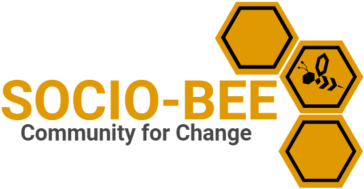The paper discusses the growing importance of urban freight research given the increasing urban population trends. The complexity of urban freight systems means that it is essential for the public and private sectors to work together - one way to achieve this has been through freight partnerships. A short review of freight partnerships highlights the way in which they have fostered mutual understanding among urban freight stakeholders. The literature on shared situational awareness (SSA) and joint knowledge production (JKP) has been adapted to position freight partnerships and to further develop and link these partnerships to the concept of a living laboratory concerned with urban freight transport. This novel application of the living lab concept is introduced. Next, the first phases of a city logistics living lab brought in practice in Rotterdam are shortly mentioned. The living lab concept fits the complexities of the urban freight system well and has been a cornerstone of a recently started major freight project in the EU (CITYLAB). © 2016 Published by Elsevier B.V.
MULTIFILE
Ever since the recognition of the causality between earthquakes in the Region Groningen (The Netherlands), gas production and the ensuing damage to houses and buildings in that area, government faces big challenges in policy-making. On the one hand liability for damages must result in fast and effective repair of houses and buildings and in safety safeguards for the infrastructure. On the other hand public trust in governmental institutions in the Earthquake area Groningen has to be restored.As a result of the advice of the Commission ‘Sustainable Future North East Groningen’ a comprehensive package of measures called ‘Trust in restoration, Restoration of trust’ (‘Vertrouwen op herstel, Herstel van vertrouwen’) was announced in which public-private partnerships were introduced for the purpose and in favor of the economic perspective of the region, including the establishment of local initiatives on sustainable energy, damage repair and guaranteeing a confidential approach by the government.Multiple actors are involved in the execution of this package of measures, since the competence of decision-making lies at State, regional and local level. Together with the emergence of public-private partnerships this all results in a very complex case of multi-level governance and policy-making.The central research question this article addresses is whether public-private partnerships contribute in a legal and effective manner to policy-making following the package of measures ‘Trust in restoration, Restoration of trust’ in the Energy Port Region Groningen.
DOCUMENT
SOCIO-BEE proposes that community engagement and social innovation combined with Citizen Science (CS) through emerging technologies and playful interaction can bridge the gap between the capacity of communities to adopt more sustainable behaviours aligned with environmental policy objectives and between the citizen intentions and the real behaviour to act in favour of the environment (in this project, to reduce air pollution). Furthermore, community engagement can raise other citizens’ awareness of climate change and their own responses to it, through experimentation, better monitoring, and observation of the environment. This idea is emphasised in this project through the metaphor of bees’ behaviour (with queens, working and drone bees as main CS actors), interested stakeholders that aim at learning from results of CS evidence-based research (honey bears) and the Citizen Science hives as incubators of CS ideas and projects that will be tested in three different pilot sites (Ancona, Marousi and Ancona) and with different population: elderly people, everyday commuters and young adults, respectively. The SOCIO-BEE project ambitions the scalable activation of changes in citizens’ behaviour in support of pro-environment action groups, local sponsors, voluntary sector and policies in cities. This process will be carried out through low-cost technological innovations (CS enablers within the SOCIO BEE platform), together with the creation of proper instruments for institutions (Whitebook and toolkits with recommendations) that will contribute to the replication, upscaling, massive adoption and to the duration of the SOCIO-BEE project. The solution sustainability and maximum outreach will be ensured by proposing a set of public-private partnerships.For more information see the EU-website.
